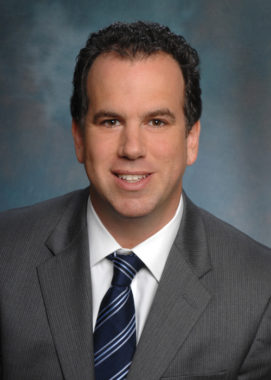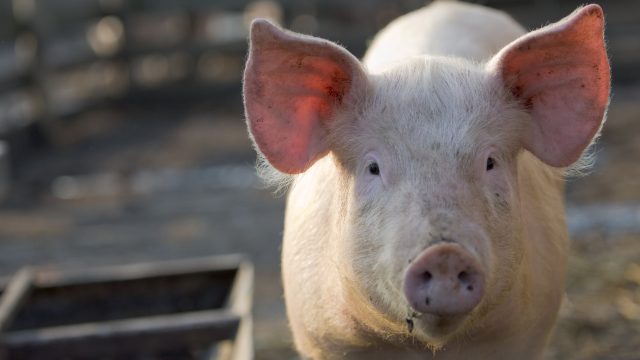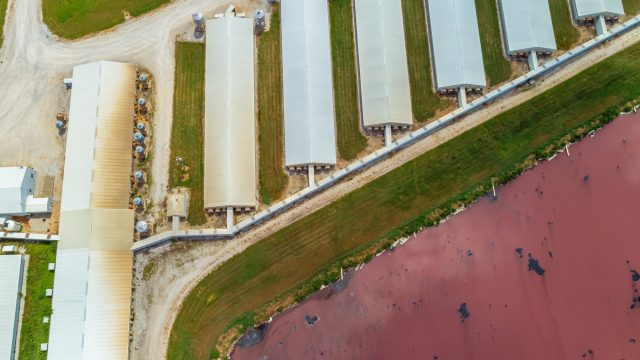
David Zaft
Historically, the law has treated companion animals like replaceable property, worth only their “market value.” But things are starting to change, thanks in part to attorneys like David Zaft. This October, the California Court of Appeal published its decision in Martinez v. Robledo, marking an important victory in the Animal Legal Defense Fund’s battle to achieve legal recognition of animals as more than “things.”

In the Martinez case, David helped draft an amicus brief on behalf of the Animal Legal Defense Fund that argued that the recovery of expensive veterinary costs after serious injury to animals should not be limited to the market value of the animal. Together with a similar decision issued by the First District court last year, the Second District’s decision solidifies the shift in California law away from treating injured animals as merely inanimate property.
David Zaft, who currently does complex commercial and environmental litigation for Caldwell Leslie & Proctor, a premier litigation firm in Los Angeles, was inspired by presentations at a Taking Action for Animals conference in Washington, D.C. He was particularly moved by a talk given by animal lawyer Bruce Wagman that drew attention to animal protection issues not given mainstream exposure. David contacted Bruce, who connected him with ALDF to provide pro bono legal research. “I hope what I can do is devote some of my skills and time to make a small contribution,” he says.
It truly pains David how much cruelty there is to animals and what we’ve created systematically in terms of animal suffering. One of the most disturbing facets of our society, he says, is agricultural cruelty to animals. David’s own background comes from farming; between undergraduate study and law school he worked in the specialty food industry, in both Michigan and the San Francisco Bay Area. He notes that the most exciting opportunities for law students in animal law are coming from agricultural law. “There is a sea change developing in the way the public views the treatment of farmed animals,” David says. “Significant changes will come as a result of efforts made by young attorneys.”
However, the biggest obstacles to these changes come from agricultural “common practice” exemptions–in which industries do not have to comply with anti-cruelty laws if the cruelty is commonly practiced within the industry. These dangerous exemptions give the agricultural industry a free pass to mistreat their animals. “As long as they exist,” David warns, “all of the great changes we make to laws that protect animals will never reach the billions of factory farmed animals.” We must reform these laws, which derive from this idea that animals are fundamentally “things” not “beings.”
This is why the decision in the Martinez case is so important. First, it allows people to recover the full costs of nursing their companion animals back health, an issue of basic fairness. But second, the deeper meaning reflected by the court’s opinion is that animals are not inanimate property; as the court put it, “animals are special, sentient beings, [and] unlike other forms of property, animals feel pain, suffer and die.” Anachronistic law that defines living beings as property deprives animals of dignity. “Animals feel, suffer, have identities, and this is a reality we all understand because so many of us live with animals,” David explains. “We know animals are more like members of our family.”
David elucidates: “In the law we have all sorts of legal fictions. But in this case, the court rejected the legal fiction that animals are the same as inanimate forms of property.” The Animal Legal Defense Fund’s brief argued that a long history of statutes regulate the way we treat animals. In this sense, the decision represents a shift in the law, but is also based on a history of valuing the lives of animals as evidenced in our anti-cruelty statues.
“David Zaft’s valuable pro bono legal assistance made a huge difference in this case,” says ALDF Senior Attorney Matthew Liebman. “Without the help of attorneys like David, we wouldn’t be able to fight as hard as we do for judicial recognition of animals’ interests.” As someone who works in private practice, David knows the value of pro bono work, especially for younger attorneys, and he appreciates the commitment that everyone at his firm makes to pro bono work. He explains, “it presents opportunities to do things you might not otherwise get to do right away, arguing in court, taking depositions, writing briefs, even going to trial. It’s a great chance to develop skills quickly.” His advice to young lawyers is to “carve out part of their time to pursue these opportunities and make a contribution to improving our society.”
A Michigan native, David Zaft moved to California after receiving his bachelor’s degree from the University of Michigan. David then pursued studies at the University of California, Berkeley, where he specialized in environmental and administrative law. While in law school, he worked for Earthjustice, the California State Resources Agency, and the Foundation for International Environmental Law, and was elected to the Order of the Coif, all while earning a master’s degree in public policy.
David lives with two rescued stray cats, his wife, and children–and his life revolves around them when he’s not working. He enjoys the diversity of Los Angeles, and that people can be who they want to be, as well as the diverse local wildlife, from coyotes who wander down the city streets, to the mountain lion living nearby in Griffith Park.
The Animal Legal Defense Fund would never be able to use the law to advance the interests of animals without the support of legal professionals nationwide. In this continuing series of spotlights, ALDF salutes attorney David Zaft.
How We Work
Issues
Related
-
Court Rules Texas Food Label Censorship Law is Unconstitutional
The law imposed unclear and vague standards on plant-based meat producers that violate the First AmendmentJanuary 29, 2026 Press Release -
State Animal Protection Laws Ranked: Oregon is #1, North Dakota #50
20th edition of ALDF state and territory ranking report highlights major advancements & trends in animal protection across the U.S.January 27, 2026 News -
Over 30 Organizations Urge USDA to Limit Federal Support for Manure Digesters
Hundreds of millions of dollars intended to cut energy costs have been funneled to costly manure digesters, benefitting the largest factory farmsJanuary 15, 2026 News



